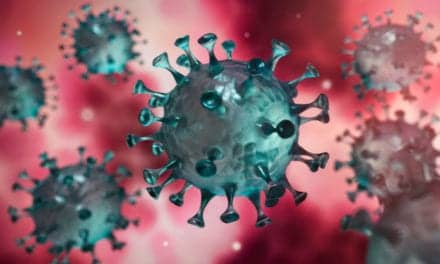Researchers have identified several factors that can be measured at the initial point of COVID-19 diagnosis that anticipate if a patient is likely to develop long COVID.
Post Acute Sequelae of COVID-19 (PASC)—commonly referred to as long COVID—effects a significant portion of people who contract the SARS-CoV-2 virus. PASC symptoms include fatigue, brain fog, the loss of taste and smell, shortness of breath, and more.
These “PASC factors” are the presence of certain autoantibodies, pre-existing Type 2 diabetes, SARS-CoV-2 RNA levels in the blood, and Epstein-Barr virus DNA levels in blood.
“Identifying these PASC factors is a major step forward for not only understanding long COVID and potentially treating it, but also which patients are at highest risk for the development of chronic conditions,” says Institute for Systems Biology President Jim Heath, PhD, co-corresponding author of a research paper that will be published by the journal Cell. “These findings are also helping us frame our thinking around other chronic conditions, such as post-acute Lyme syndrome, for example.”
Researchers found mild cases of COVID-19 are also associated with long COVID. They also suggest that administering antivirals very early in the disease course may potentially prevent some PASC.
“Long COVID is causing significant morbidity in survivors of COVID-19, yet the pathobiology is poorly understood,” says Jason Goldman, MD, MPH, co-corresponding author of the paper and an infectious disease expert at Swedish Medical Center Foundation. “Our study pairs clinical data and patient-reported outcomes with deep multi-omic analyses to unravel important biological associations that occur in patients with PASC. Certain findings such as the low cortisol state in patients with long COVID have potential to translate rapidly to the clinic. Our results form an important foundation for the development of therapeutics to treat long COVID.”
Researchers collected blood and swab samples from 309 COVID-19 patients at different time points to perform comprehensive phenotyping which was integrated with clinical data and patient-reported symptoms to carry out a deep multi-omic, longitudinal investigation.
“We found that early blood viral measurements are strongly associated with certain long COVID symptoms that patients will develop months later,” says Yapeng Su, BSc, a co-first and co-corresponding author of the paper.
In addition, researchers found the Epstein-Barr virus (EBV)—a virus that infects 90% of the human population and is normally inactive in the body after infection—is reactivated early on after SARS-CoV-2 infection, which is significantly associated with future long COVID symptoms.
The team also found that PASC is anticipated by autoantibodies (which associate with autoimmune diseases like lupus) at diagnosis, and that as autoantibodies increase, protective SARS-CoV-2 antibodies decrease. This suggests a relationship between long COVID, autoantibodies and patients at elevated risk of re-infections.
The research project was a collaboration between ISB, Providence, Swedish the University of Washington, Fred Hutchinson Cancer Research Center, Stanford, UCLA, UCSF, and others.





